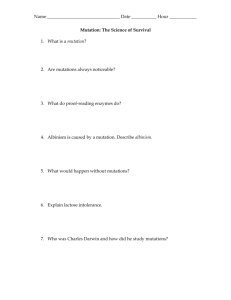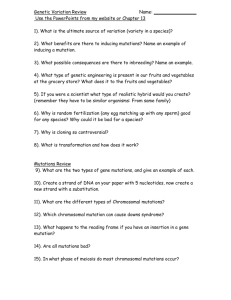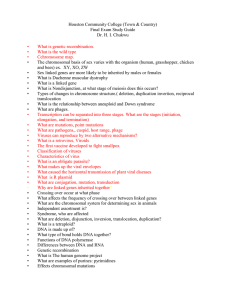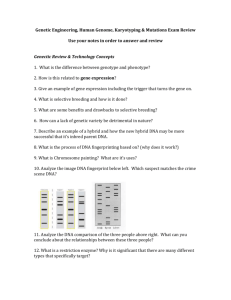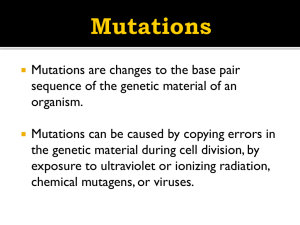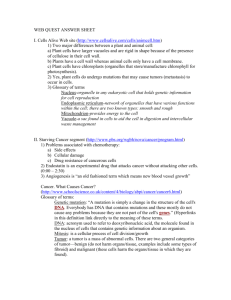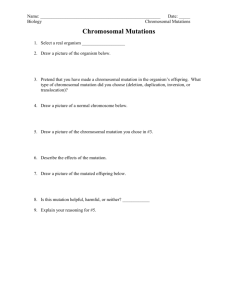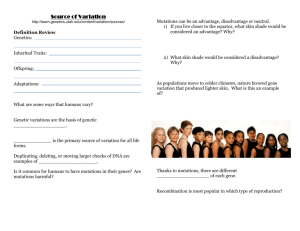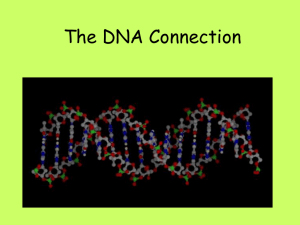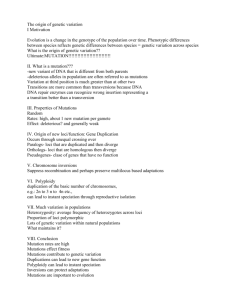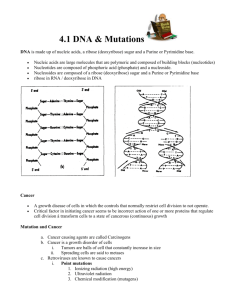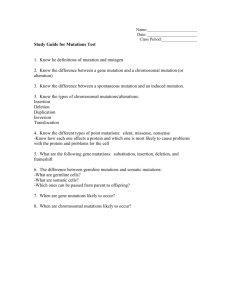Quiz
advertisement
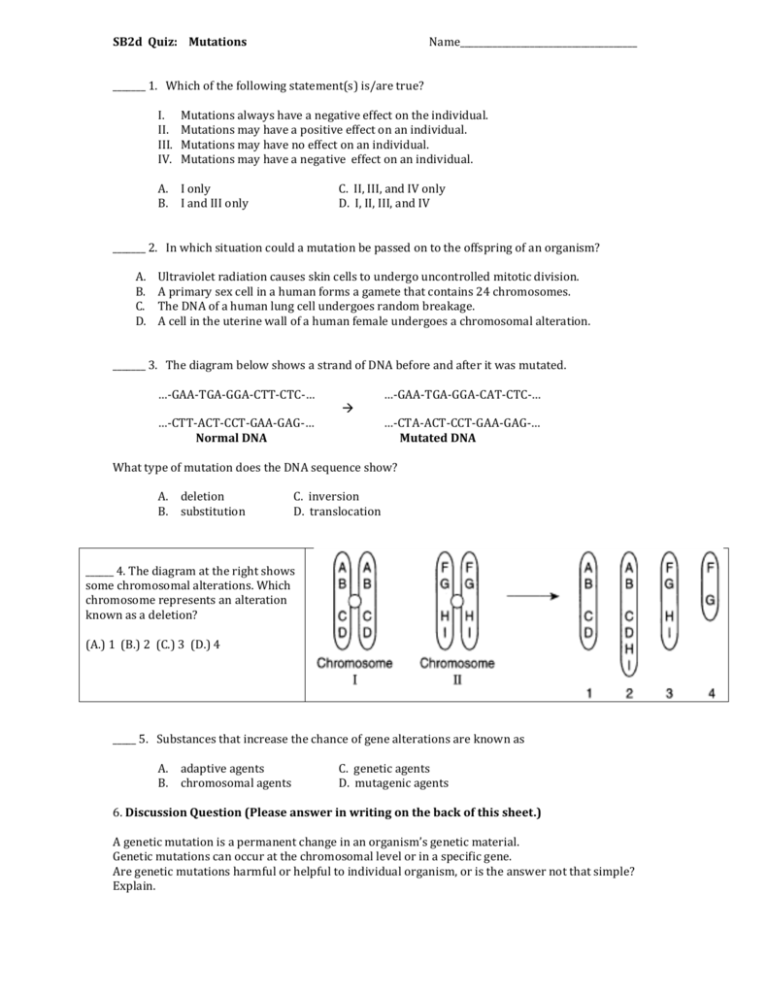
SB2d Quiz: Mutations Name______________________________________ _______ 1. Which of the following statement(s) is/are true? I. II. III. IV. Mutations always have a negative effect on the individual. Mutations may have a positive effect on an individual. Mutations may have no effect on an individual. Mutations may have a negative effect on an individual. A. I only B. I and III only C. II, III, and IV only D. I, II, III, and IV _______ 2. In which situation could a mutation be passed on to the offspring of an organism? A. B. C. D. Ultraviolet radiation causes skin cells to undergo uncontrolled mitotic division. A primary sex cell in a human forms a gamete that contains 24 chromosomes. The DNA of a human lung cell undergoes random breakage. A cell in the uterine wall of a human female undergoes a chromosomal alteration. _______ 3. The diagram below shows a strand of DNA before and after it was mutated. …-GAA-TGA-GGA-CTT-CTC-… …-CTT-ACT-CCT-GAA-GAG-… Normal DNA …-GAA-TGA-GGA-CAT-CTC-… …-CTA-ACT-CCT-GAA-GAG-… Mutated DNA What type of mutation does the DNA sequence show? A. deletion B. substitution C. inversion D. translocation ______ 4. The diagram at the right shows some chromosomal alterations. Which chromosome represents an alteration known as a deletion? (A.) 1 (B.) 2 (C.) 3 (D.) 4 _____ 5. Substances that increase the chance of gene alterations are known as A. adaptive agents B. chromosomal agents C. genetic agents D. mutagenic agents 6. Discussion Question (Please answer in writing on the back of this sheet.) A genetic mutation is a permanent change in an organism’s genetic material. Genetic mutations can occur at the chromosomal level or in a specific gene. Are genetic mutations harmful or helpful to individual organism, or is the answer not that simple? Explain.
